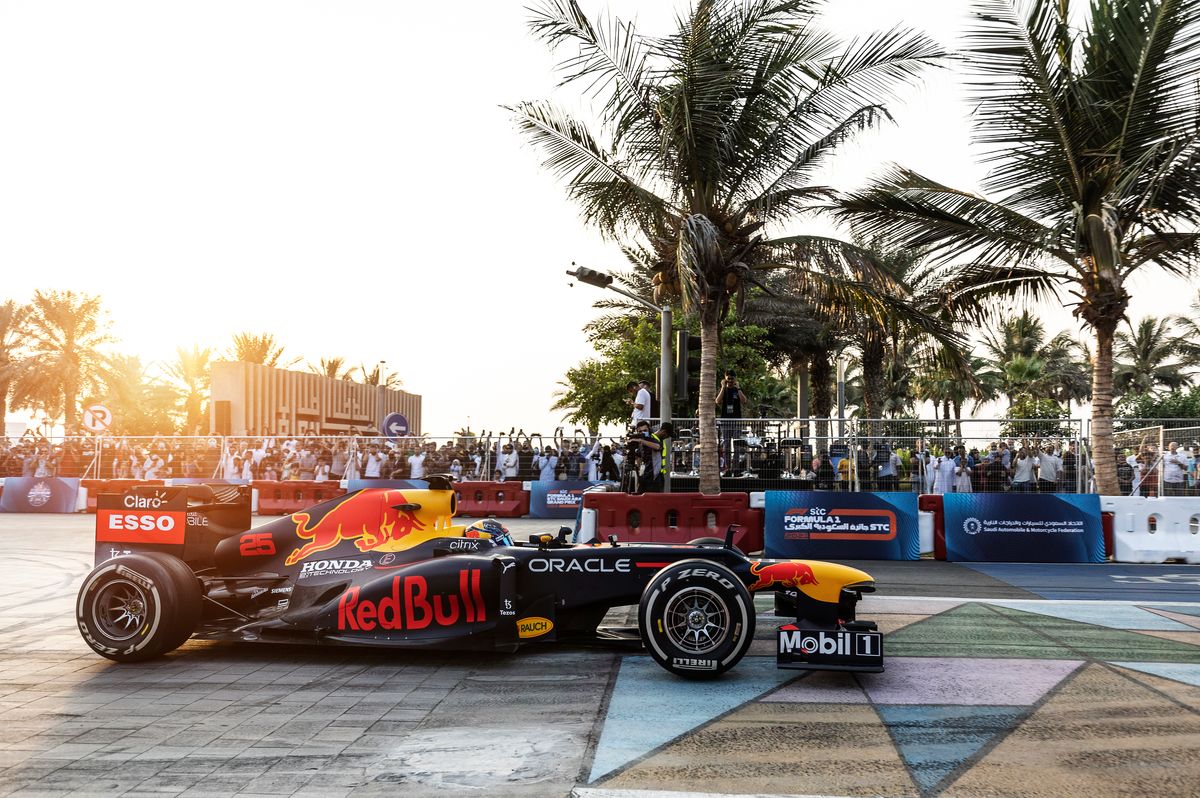Saudi Arabia reportedly wants to buy Formula 1 for more than US$20 billion
Formula 1 motor racing has become more popular since Liberty Media acquired it for US$4.4 billion in 2017.

A few minutes every morning is all you need.
Stay up to date on the world's Headlines and Human Stories. It's fun, it's factual, it's fluff-free.
The backstory: Saudi Arabia has been trying to present a more modern and westernized image and become less financially dependent on oil sales by investing in sports and hosting major sporting events. For example, it recently signed Cristiano Ronaldo to Al Nassr, placed a bid for the 2030 World Cup and invested in Newcastle United FC, an English Premier League football club. But, some critics have said it's actually "sportswashing" to distract from the kingdom's human rights issues.
More recently: Formula 1 motor racing has become more popular since Liberty Media acquired it for US$4.4 billion in 2017. With Saudi Aramco, the world's largest oil producer, getting a sponsorship deal with F1 in 2020 and four races scheduled in the region during the 2023 season, the Middle East is becoming a major player in the world of F1.
The development: According to sources speaking to Bloomberg, Saudi's Public Investment Fund (PIF) made an offer to F1 owner Liberty Media to buy it for more than US$20 billion, but the deal fell through since Liberty Media wasn't interested in selling. But, the PIF still wants to buy F1 and would possibly be the most serious bidder if Liberty Media changes its mind.
Key comments:
"We are investing a lot in infrastructures, in building tracks in Saudi Arabia. We want to build academies so we can be more involved: Saudi teams with Saudi drivers or other drivers to race in Saudi teams. It's still a long way ahead but hopefully by 2030, 2035, 2040 we can achieve our goals," said Prince Khalid Bin Sultan Al Faisal, president of the Saudi Automobile Motorcycling Federation, to Motor Sport, referring to Saudi Arabia's objective in training F1 drivers.
"Saudi Arabia's extensive use of sport as an exercise in soft power is well-known, but with Qatari-owned PSG appearing in Riyadh we effectively have two sportswashing superpowers – Saudi Arabia and Qatar – flexing their muscles," said Peter Frankental, Amnesty UK's economic affairs director, referring to Saudi Arabia's efforts in the sports scene.
"The mistakes in awarding the most watched event in football to Qatar must not be repeated. Women, journalists, members of the LGBTQ community and all fans of the game should ask how it could possibly be held in a country where their rights are not respected. The players should not be expected to compete where human rights are so utterly compromised," said Minky Worden, a director at Human Rights Watch, referring to Qatar hosting the FIFA World Cup 2022. "If Saudi Arabia ends up co-hosting the World Cup, it would harm FIFA's human rights policies and reward Saudi Arabia's escalating repression. This idea deserves a red card."




Comments ()